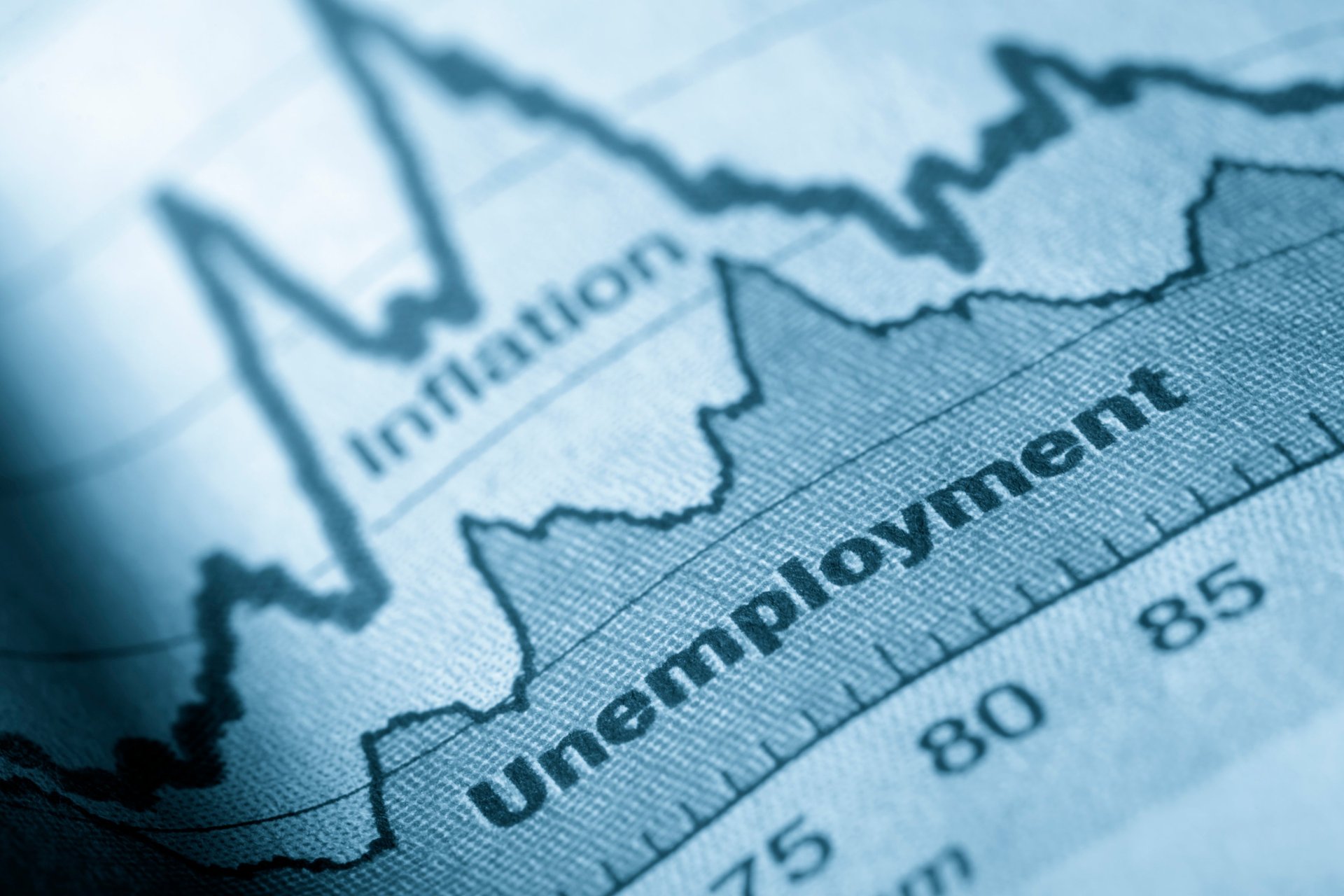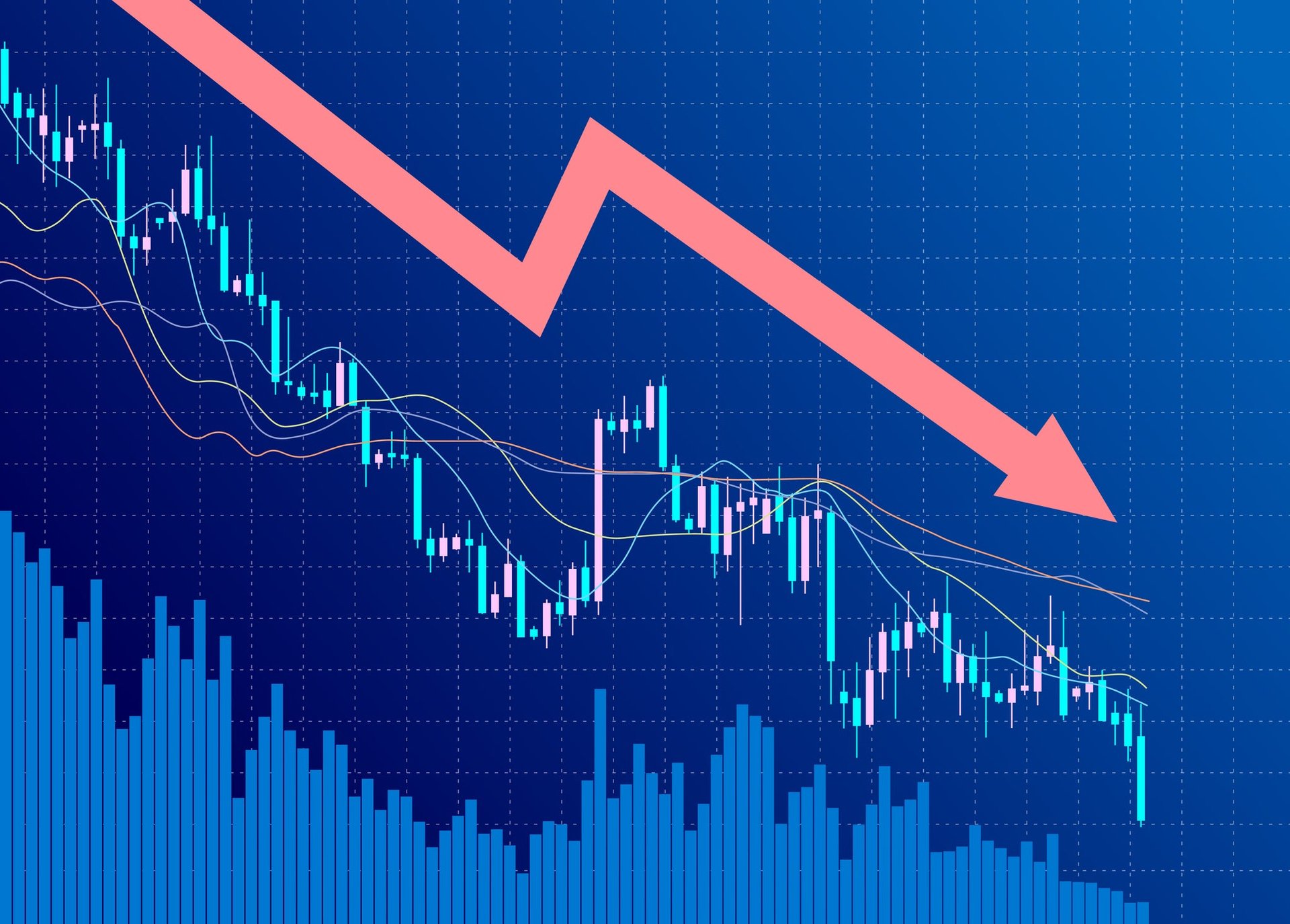What is a recession?
Dig into what a recession is, how it's defined, and how it's likely to affect your finances and the economy as a whole

Recessions are a normal part of the economic cycle, but there’s some disagreement on what constitutes a recession and what it means for you. Find out what a recession is, how one starts, how it can affect your finances, and how you’ll know when an economy in recession has started to recover.
Suggested Reading
The definition of a recession
Generally, a recession is defined as two consecutive quarters of negative growth, which is determined by monitoring a country’s inflation-adjusted gross domestic product (GDP). GDP measures a nation’s economic output, so a decline indicates that economic activity has slowed.
Related Content
Recessions hit key economic metrics, including gross domestic product (GDP), employment, consumer spending, industrial production, and business investments.
Negative economic growth
In the United States, the Business Cycle Dating Committee, part of the National Bureau of Economic Research, is the only body with the authority to declare a recession. However, the committee only announces a recession once it’s already happening, making it difficult for the average consumer to prepare.
The Great Recession, which took place between 2007 and 2009, caused a prolonged period of global economic instability. Several factors contributed to the decline in economic activity, but the housing market crash accelerated the problem in the United States.
A recession also occurred during the COVID-19 pandemic. Governments around the world issued lockdown orders to prevent SARS-CoV-2 from spreading, leaving many businesses struggling to survive. Consumers couldn’t dine in restaurants, browse clothing boutiques, or enjoy Broadway performances.
Key triggers of a recession
Early recessions typically occurred due to banking panics, which prompted Americans to withdraw their funds en masse. After World War II, recessions began to occur in response to supply and demand shocks.
A supply shock causes a sudden drop in the amount of resources available to support critical production processes. In response, suppliers raise their prices. Demand shocks occur when consumers and business owners aren’t willing to spend as much money. Supply and demand shocks occur for many reasons, such as financial crises, trade wars, sudden policy changes, or housing market crashes.
The Great Recession occurred, in part, because of a housing market crash. Due to looser credit requirements, many high-risk borrowers were able to get home loans that they wouldn’t have qualified for in the past.
If a borrower couldn’t afford their mortgage payments, they simply refinanced the original loan. This worked well while property values were rising, but it wasn’t a viable option when prices started to fall.
Eventually, many borrowers defaulted on their loans, prompting banks to foreclose. At the same time, investors were buying mortgage-backed securities, or bonds secured by mortgages. When property values dropped, the value of these securities also declined significantly, leaving investors with substantial losses.
During the COVID-19 recession, the federal government issued a series of stimulus payments to help Americans cope with the pandemic. Although these payments made it easier to afford food and other necessities, they also increased the money supply, contributing at least somewhat to the inflation that followed the pandemic. There is debate among economists as to how much stimulus spending contributed to inflation.
How long do recessions last?
To qualify as a recession, the decline in economic activity must last for at least two months. However, some recessions last longer than others. Recovery depends on several factors, including policy changes and variations in supply and demand.
For example, the Great Recession lasted from December 2007 to June 2009. In contrast, the COVID-19 recession was significantly shorter, lasting just two months. The U.S. economy recovered quickly due to a combination of structural resilience, rapid vaccine development, and fiscal support programs. That said, the economic effects of the pandemic lasted far longer.

The effects of a recession
A recession doesn’t affect everyone the same way. The impact depends on your household income and overall financial stability, among other factors. Some families can flourish while others struggle under the same economic conditions.
Impacts on businesses
If you operate a business, a recession may have the following effects:
- Reduced cash flow. During tough economic times, many consumers have less money to spend on non-necessities. Unless your company sells food or other essential goods, you may generate less revenue, resulting in reduced cash flow.
- Layoffs. If your business experiences a significant drop in revenue, you may not be able to meet your payroll obligations. As a result, many businesses have to conduct layoffs during a recession.
- Difficulty accessing credit. Banks and other lenders typically tighten their requirements during a recession, making it more difficult to qualify for loans and credit cards.
- Reduced stock prices. When a public company’s financial performance suffers, the value of its stock often declines. Investors may also receive lower dividends.
How recessions affect the average person
Recessions may affect consumers in the following ways:
- Unemployment. When businesses conduct layoffs, some workers end up jobless, leaving them without the income needed to afford basic necessities.
- Difficulty borrowing money. Financial institutions are always looking for ways to mitigate risk. In an economic downturn, there’s an increased likelihood that borrowers won’t be able to repay loans or make their monthly credit card payments. As a result, you may have trouble borrowing money.
- Lifestyle changes. The longer a recession lasts, the more likely it is that you’ll have to adjust your lifestyle in some way. You may stop taking vacations, switch to generic versions of your favorite products, or cut back on entertainment expenses.
Who might benefit from a recession?
Recessions are difficult for the vast majority of families, but some people benefit from periods of economic downturn. For example, if you have a significant amount of money saved, you may be able to invest in stocks and other securities when their prices are low.
Businesses with plenty of cash on hand may also have an easier time negotiating with vendors who’ve been hurt by the decline in economic activity. A recession is also a good time to look for bargains on furniture, electronics, and other goods.
Warning signs to watch out for
There are some economic indicators that may signal a coming transition in the economic cycle:
- GDP growth. Sluggish GDP growth or one quarter of negative growth are potential signs that a recession is coming.
- Unemployment rates and job market trends. If employers are concerned about the economy, they may lay off workers or hire more part-time workers instead of full-time employees.
- Consumer confidence and spending patterns. When customers believe a recession is imminent, they tend to spend less on discretionary expenses and may focus on saving money.
- Inflation rates and price stability. Prices tend to fluctuate in the months leading up to a recession, giving you some advance warning of a coming economic transition.
- Stock market performance. A sluggish economy may cause people to sell off stock or hold stock longer than usual in anticipation of a downturn.
Recovering from a recession
All recessions eventually come to an end. The economy may be improving if you notice that companies are hiring workers again or that the government has made policy changes designed to stimulate economic activity.
For example, the IRS issued 476 million economic impact payments to eligible American taxpayers, increasing the amount of money available to spend. These payments were part of the relief measures included in the Coronavirus Aid, Relief, and Economic Security Act of 2020 and the American Rescue Plan of 2021.
The CARES Act also allocated additional funds to help the economy recover from the lingering effects of the COVID-19 pandemic. In 2009, Congress passed the American Recovery and Reinvestment Act (ARRA), which helped the United States recover from the Great Recession much faster than other developed nations. For example, ARRA resulted in a rapid decrease in the unemployment rate and a $500 billion increase in the U.S. GDP within a single year.